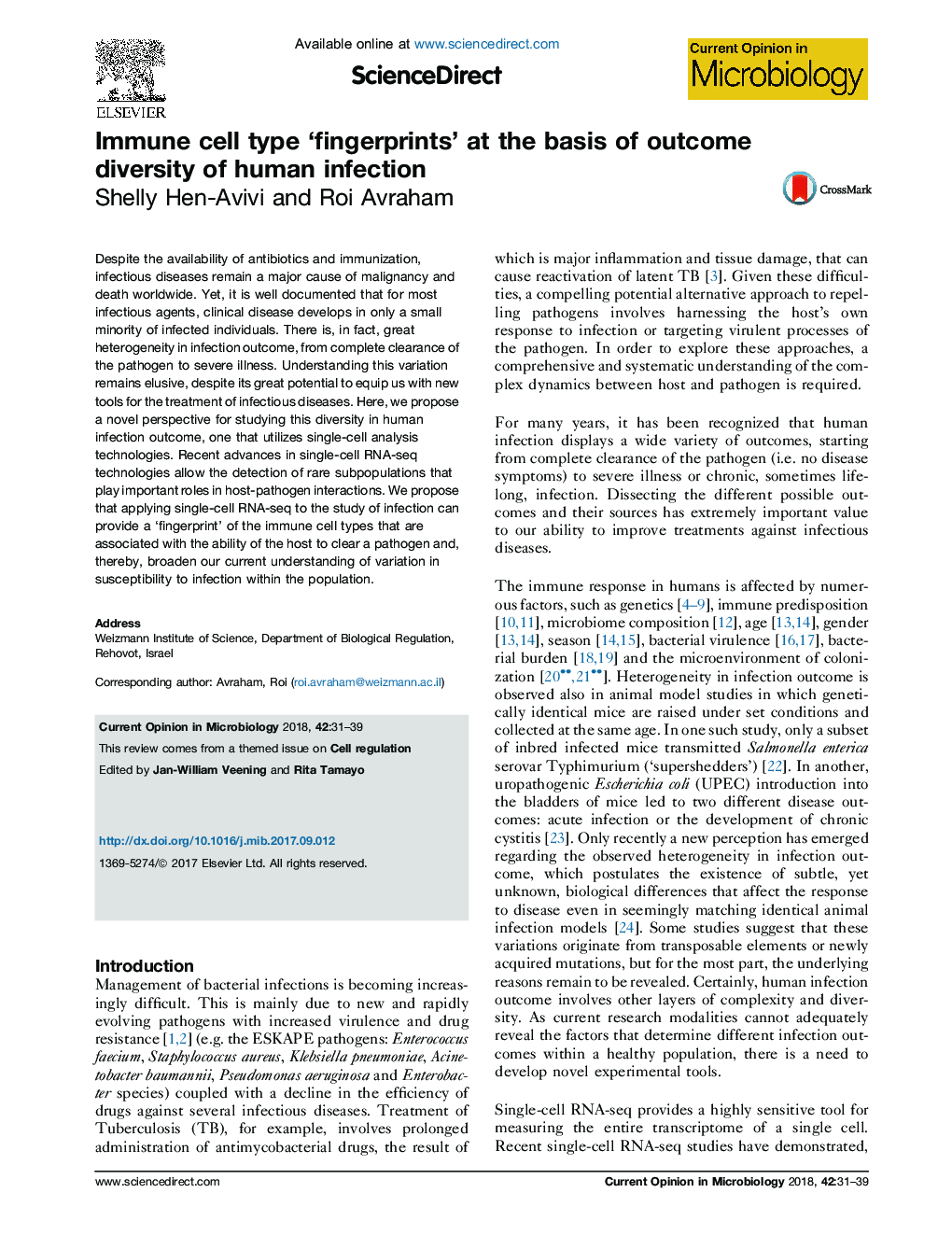| Article ID | Journal | Published Year | Pages | File Type |
|---|---|---|---|---|
| 5671915 | Current Opinion in Microbiology | 2018 | 9 Pages |
â¢Human infectious diseases have a wide variety of outcomes.â¢Studying heterogeneity in human response to infection requires single cell approaches.â¢An 'immune fingerprint' describes the specific composition of immune cell subpopulations.â¢Associating immune fingerprints with infection outcomes can set the stage for novel treatments.
Despite the availability of antibiotics and immunization, infectious diseases remain a major cause of malignancy and death worldwide. Yet, it is well documented that for most infectious agents, clinical disease develops in only a small minority of infected individuals. There is, in fact, great heterogeneity in infection outcome, from complete clearance of the pathogen to severe illness. Understanding this variation remains elusive, despite its great potential to equip us with new tools for the treatment of infectious diseases. Here, we propose a novel perspective for studying this diversity in human infection outcome, one that utilizes single-cell analysis technologies. Recent advances in single-cell RNA-seq technologies allow the detection of rare subpopulations that play important roles in host-pathogen interactions. We propose that applying single-cell RNA-seq to the study of infection can provide a 'fingerprint' of the immune cell types that are associated with the ability of the host to clear a pathogen and, thereby, broaden our current understanding of variation in susceptibility to infection within the population.
